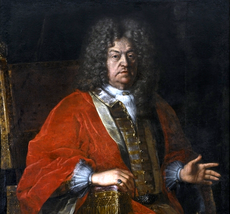Konrad Morawski, University of Warsaw
Jan Bonawentura Krasiński, a wealthy aristocrat of the Polish-Lithuanian Commonwealth, is mainly omitted from political history. Even though he is believed to be one of the most important art patrons in Poland of his time, also in art-historical studies he is mentioned only on the margins. This is probably because the extensive archives of the Krasiński family were almost completely destroyed during World War II, so studying his life and legacy is hindered. However, his milieu can be reconstructed based on scraps of source information, third-party letters, court records, or diaries. The paper will present the findings of the research project on Krasiński’s patronage, which will lead to research perspectives on Central European microhistories of patrons and their potential for analysing patterns of early modern art patronage in this cross-cultural region. The question of what links German-speaking workshops from the Baltic Sea Region, itinerant artists from the north of Italy, local monks, and patrons from different cultural or ethnic backgrounds, people who traced their origins to Romans, Sarmatians, or Huns, will be addressed in the paper.
Konrad Morawski is a PhD candidate at the Doctoral School of Humanities at the University of Warsaw. He is carrying out, as principal investigator, a research project on the artistic patronage of Jan Bonawentura Krasiński (1639-1717) (National Science Centre, Poland, 2018/31/N/HS2/00740). His research interests focus on early modern art, with an emphasis on art patronage, iconography and cultural transfers in 17th century Polish-Lithuanian Commonwealth. He is also interested in the research methodology dealing with written sources in art history.
